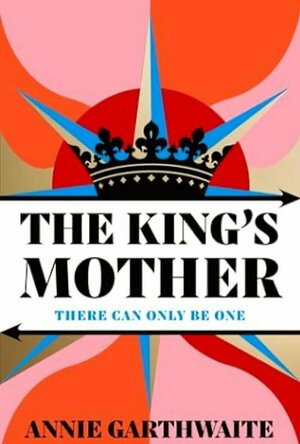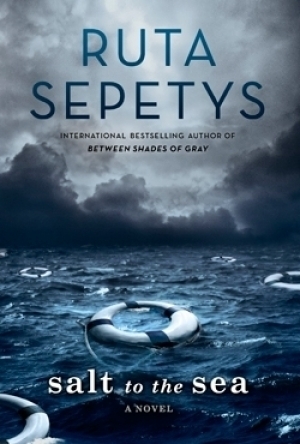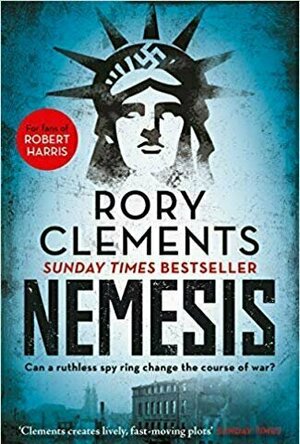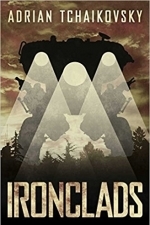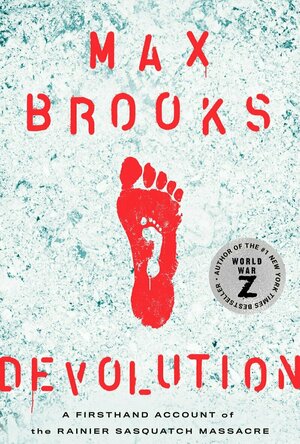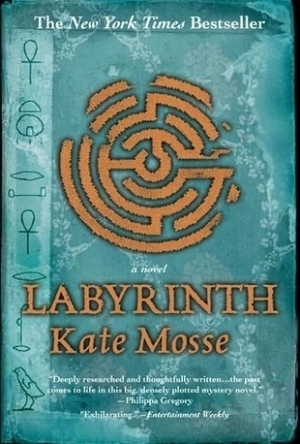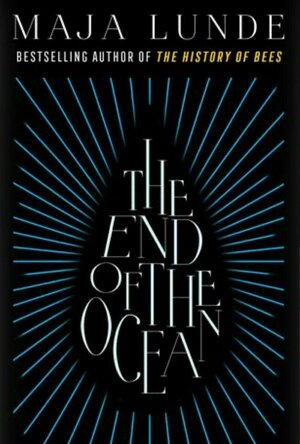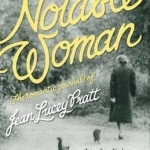Search
Search results
ClareR (5879 KP) rated The King’s Mother in Books
Jan 7, 2025
I realise as I write this that I’ve read The King’s Mother before the first part of this duology (Cecily). Ah well. It hasn’t spoilt my enjoyment one bit, though. I have a fair bit of knowledge of the War of the Roses from Edward and Richard’s points of view, and it was fascinating to learn about Edward’s reign (and later Richard’s) from Cecily.
This novel explores those things that the women, in particular, would have experienced. Their lives wouldn’t have just been about waiting for their husbands, sons and fathers to come home, it would have been about the relationships with other women, their children, and in Cecily’s case, about her relationship to the throne and those in power.
Cecily was a formidable woman (as was Henry VII’s mother, Margaret Beaufort). She saw the death of her husband, sons, and regime changes. She backed her sons up, no matter her personal opinions. She was unendingly loyal - but anyone else was fair game!
This is such a well-researched, gripping read. I would have hated to have been in Cecily’s shoes, and she proved that power didn’t always bring happiness.
This was a fabulous read, and I will go back and read Cecily. If you enjoy historical fiction, then this would be a great addition to your TBR!
This novel explores those things that the women, in particular, would have experienced. Their lives wouldn’t have just been about waiting for their husbands, sons and fathers to come home, it would have been about the relationships with other women, their children, and in Cecily’s case, about her relationship to the throne and those in power.
Cecily was a formidable woman (as was Henry VII’s mother, Margaret Beaufort). She saw the death of her husband, sons, and regime changes. She backed her sons up, no matter her personal opinions. She was unendingly loyal - but anyone else was fair game!
This is such a well-researched, gripping read. I would have hated to have been in Cecily’s shoes, and she proved that power didn’t always bring happiness.
This was a fabulous read, and I will go back and read Cecily. If you enjoy historical fiction, then this would be a great addition to your TBR!
I adore this book. It's not only a good science fiction story, but also fantastically character-driven, which is rare in genre fiction. That's great for me. When I read a book, I care more about psychological development than what a shiny setting and fun toys it has.
It's not a happy, frolic-through-the-daisies type of story. We're talking not only about war, but child abuse, human trafficking and rape. It can be quite disturbing, if that type of thing isn't your cup of tea. But if that doesn't particularly bug you, it's a fantastic book.
One thing that really bugs me, though, is how so many people insist there's slash. As a person who's not into that kind of thing, that originally turned me off of reading it, because I had a bad feeling the main character, Jos, was going to find healing comfort from his trauma in the loving arms of another guy, and it would go downhill from there.
Luckily, I decided to read it anyway. And I don't see very much slash there. Sure, one character definitely has a thing for Jos, and the villain's a real creep, and then there's a character who's gay by Word Of God, but that's it for this book. The rest of it's pretty much characters insinuating, which is designed to anger other characters. That's it.
Jos, himself, is on the asexual side. He treats attraction as a completely alien concept. Niko is a surrogate father to him. I see him as feeling responsible for protecting Evan. Evan, who frustrates him a great deal. And one time, Jos seriously needed a hug, and fell asleep while being hugged. Woke up, and went right back to the asexual, PTSD, Hates-Being-Touched Jos we know and love.
None of that makes him gay. And three characters who are bi or gay does in no way a majority make. Sure, the shipping potential is there for fans if they want to use it, but certain type of fans are always finding stuff where there's canonically nothing.
In short, one of the best books I've read, and I absolutely loved the main character. He is not gay, and neither are the majority of characters.
It's not a happy, frolic-through-the-daisies type of story. We're talking not only about war, but child abuse, human trafficking and rape. It can be quite disturbing, if that type of thing isn't your cup of tea. But if that doesn't particularly bug you, it's a fantastic book.
One thing that really bugs me, though, is how so many people insist there's slash. As a person who's not into that kind of thing, that originally turned me off of reading it, because I had a bad feeling the main character, Jos, was going to find healing comfort from his trauma in the loving arms of another guy, and it would go downhill from there.
Luckily, I decided to read it anyway. And I don't see very much slash there. Sure, one character definitely has a thing for Jos, and the villain's a real creep, and then there's a character who's gay by Word Of God, but that's it for this book. The rest of it's pretty much characters insinuating, which is designed to anger other characters. That's it.
Jos, himself, is on the asexual side. He treats attraction as a completely alien concept. Niko is a surrogate father to him. I see him as feeling responsible for protecting Evan. Evan, who frustrates him a great deal. And one time, Jos seriously needed a hug, and fell asleep while being hugged. Woke up, and went right back to the asexual, PTSD, Hates-Being-Touched Jos we know and love.
None of that makes him gay. And three characters who are bi or gay does in no way a majority make. Sure, the shipping potential is there for fans if they want to use it, but certain type of fans are always finding stuff where there's canonically nothing.
In short, one of the best books I've read, and I absolutely loved the main character. He is not gay, and neither are the majority of characters.
Louise (64 KP) rated Salt to the Sea in Books
Jul 2, 2018
This book! OMG you guys! It had the feels and was so so so so sad!
Guilt is a hunter.
Salt to the Sea is a story set in 1945 Germany told from four perspectives, Florian, Joana, Emilia and Alfred all from different homelands, fleeing Stalin's Red Army. Refugees are fleeing for freedom in form on the Wilhelm- Gustloff a ship that will make a 48 hour trip to Kiel. The Wilhelm-Gustaloff is evacuating injured soldiers and civilians - It's capacity is to hold 1500 passengers but with so many people they are forced to take over 10,000. A few hours into the trip the ship is hit by Russian torpedoes, does the foursome still have enough fight to survive?
Fate is a hunter.
Joana is Lithuanian and has been assisting a doctor with surgery, with her knowledge she is able to help some of the injured refugees and civilians she comes across. She is leading a current group of people to the Wilhelm Gustloff when she meets Florian a Prussian apprentice art restorer for Gauleiter Erich Koch who was a leader of the regional branch of Nazi party (Very high up). Along side Florian is Emilia a 15-year-old Polish girl on the run from a farm in which she was sent by her father. Then there is Alfred a German sailor, with his first Voyage being the Wilhelm-Gustloff.
Shame is a hunter
This book was heartbreaking and a real eye opener. The story is told in small chapters alternating from the four perspectives. Alfred's perspectives are sometimes told in letters to a love interest back home The characters are equally fleshed out and you get a real connection with them, they all have something they are running from and a background story. I really didn't like Alfred's character, in his letters he was making out that he was some highly responsible soldier which made a huge difference to the war when all he was doing was a low-level job on the ship, he was pretty much insane. Emilia's story grew stronger and stronger as the story went on and became more peturbed . Florian is a mysterious character who doesn't reveal much about himself but he is always calculating the best way to freedom. There is a slow burn romance within the novel but it is no way insta-lovey at all. With this romance we find out more about Florian.
Fear is a hunter.
This book reminded me a lot of 'All the light we cannot see' by Anthony Doerr minus the fantasy element. But for me it was much better, the fact that you don't really read stories about Lithuanians, Prussians etc in world war 2 stories. The Wilhelm Gustloff was an actual ship in world war 2 and 9,500 lives were lost however I had never heard about this before and I am really interested in reading more about this. I am going to be honest, I don't know too much about the war and the particulars to it, so I can't say how accurate Ruta's account is.
This book is compelling and harrowing at the same time, some of the descriptions of how the civilians and refugees were living and attempts for freedom were deeply upsetting. The most moving book I have read this year and would definitely recommend to anyone that is interested in historical fiction.
I loved Ruta Sepetys writing and really want to read between shades of gray and out of the easy.
I rated this 5 out of 5 stars.
Guilt is a hunter.
Salt to the Sea is a story set in 1945 Germany told from four perspectives, Florian, Joana, Emilia and Alfred all from different homelands, fleeing Stalin's Red Army. Refugees are fleeing for freedom in form on the Wilhelm- Gustloff a ship that will make a 48 hour trip to Kiel. The Wilhelm-Gustaloff is evacuating injured soldiers and civilians - It's capacity is to hold 1500 passengers but with so many people they are forced to take over 10,000. A few hours into the trip the ship is hit by Russian torpedoes, does the foursome still have enough fight to survive?
Fate is a hunter.
Joana is Lithuanian and has been assisting a doctor with surgery, with her knowledge she is able to help some of the injured refugees and civilians she comes across. She is leading a current group of people to the Wilhelm Gustloff when she meets Florian a Prussian apprentice art restorer for Gauleiter Erich Koch who was a leader of the regional branch of Nazi party (Very high up). Along side Florian is Emilia a 15-year-old Polish girl on the run from a farm in which she was sent by her father. Then there is Alfred a German sailor, with his first Voyage being the Wilhelm-Gustloff.
Shame is a hunter
This book was heartbreaking and a real eye opener. The story is told in small chapters alternating from the four perspectives. Alfred's perspectives are sometimes told in letters to a love interest back home The characters are equally fleshed out and you get a real connection with them, they all have something they are running from and a background story. I really didn't like Alfred's character, in his letters he was making out that he was some highly responsible soldier which made a huge difference to the war when all he was doing was a low-level job on the ship, he was pretty much insane. Emilia's story grew stronger and stronger as the story went on and became more peturbed . Florian is a mysterious character who doesn't reveal much about himself but he is always calculating the best way to freedom. There is a slow burn romance within the novel but it is no way insta-lovey at all. With this romance we find out more about Florian.
Fear is a hunter.
This book reminded me a lot of 'All the light we cannot see' by Anthony Doerr minus the fantasy element. But for me it was much better, the fact that you don't really read stories about Lithuanians, Prussians etc in world war 2 stories. The Wilhelm Gustloff was an actual ship in world war 2 and 9,500 lives were lost however I had never heard about this before and I am really interested in reading more about this. I am going to be honest, I don't know too much about the war and the particulars to it, so I can't say how accurate Ruta's account is.
This book is compelling and harrowing at the same time, some of the descriptions of how the civilians and refugees were living and attempts for freedom were deeply upsetting. The most moving book I have read this year and would definitely recommend to anyone that is interested in historical fiction.
I loved Ruta Sepetys writing and really want to read between shades of gray and out of the easy.
I rated this 5 out of 5 stars.
Ivana A. | Diary of Difference (1171 KP) rated Nemesis in Books
Feb 3, 2020
<a href="https://diaryofdifference.com/">Blog</a>; | <a href="https://www.facebook.com/diaryofdifference/">Facebook</a>; | <a href="https://twitter.com/DiaryDifference">Twitter</a>; | <a href="https://www.instagram.com/diaryofdifference/">Instagram</a>; | <a href="https://www.pinterest.co.uk/diaryofdifference/pins/">Pinterest</a>;
<b>The Tom Wilde Series</b>
#1 <a href="https://www.goodreads.com/review/show/2780335366">Corpus</a>; - Not Read Yet
#2 <a href="https://www.goodreads.com/review/show/2780335377">Nucleus</a>; - Not Read Yet
#3 <a href="https://www.goodreads.com/review/show/2664038091">Nemesis</a>; - ★★★★★
<img src="https://diaryofdifference.com/wp-content/uploads/2019/04/New-blog-banner-13.png"/>;
<b><i>Nemesis is the third book from the Tom Wilde series by Rory Clements. I haven't read the previous two books, and I also haven't read any books from Rory Clements before. I received this book through ReadersFirst, and I will be honest, I was quite reluctant to read it. You already know my opinion on reading sequels before reading the previous books - but I went in blind in this book.</i></b>
The blue cover is simply gorgeous and I knew it was a thriller and a mystery, so I decided this was enough to get me going. If this book review ever captures your attention, I advise you to also go in blind. I think going blind made me enjoy this book even more.The fact that this is a third book in a series doesn't mean anything. The only similarity with the other books is the main character. Almost the same basis as Dan Brown's series and his professor Robert Langdon. The books are entirely standalones.
It is very hard to reveal what the plot is about without spoiling the fun. Tom Wilde is a university professor and one of his very talented students, Marcus, has left to join the International Brigades in Spain. Now, two years after, he is in trouble, and Tom helps him come home.
Meanwhile, numerous things happen, involving World War 2 Politics and propaganda, and in these times, no one knows who to trust. And when Tom Wilde finds himself in great danger, who will help him? And who does he needs to be afraid from? Has maybe helping Marcus been his greatest mistake?
Nemesis is full of suspense from the very first chapter, and the thing I loved the most about it was that the chapters are quite short, and always leave you hanging, hungry to find out more. Every word that Rory Clements types had a meaning and a purpose in this book, and that was the bit I admired the most.
The time setting revolves around the Second World War - a subject I don't often read about. I can't judge about the historical fiction element. However I do know that while I am a person that doesn't enjoy war books, this one struck me in a nice way. The war setting was very well written, and you could even feel the atmosphere around it. The ending was pleasantly surprising and it involved a mystery I could simply not resist.
<b>I will definitely read more books by Rory Clements, as I really enjoy the writing. If you enjoy thrillers and if you are a fan of Dan Brown, you will probably enjoy Nemesis a lot!</b>
<a href="https://diaryofdifference.com/">Blog</a>; | <a href="https://www.facebook.com/diaryofdifference/">Facebook</a>; | <a href="https://twitter.com/DiaryDifference">Twitter</a>; | <a href="https://www.instagram.com/diaryofdifference/">Instagram</a>; | <a href="https://www.pinterest.co.uk/diaryofdifference/pins/">Pinterest</a>;
<b>The Tom Wilde Series</b>
#1 <a href="https://www.goodreads.com/review/show/2780335366">Corpus</a>; - Not Read Yet
#2 <a href="https://www.goodreads.com/review/show/2780335377">Nucleus</a>; - Not Read Yet
#3 <a href="https://www.goodreads.com/review/show/2664038091">Nemesis</a>; - ★★★★★
<img src="https://diaryofdifference.com/wp-content/uploads/2019/04/New-blog-banner-13.png"/>;
<b><i>Nemesis is the third book from the Tom Wilde series by Rory Clements. I haven't read the previous two books, and I also haven't read any books from Rory Clements before. I received this book through ReadersFirst, and I will be honest, I was quite reluctant to read it. You already know my opinion on reading sequels before reading the previous books - but I went in blind in this book.</i></b>
The blue cover is simply gorgeous and I knew it was a thriller and a mystery, so I decided this was enough to get me going. If this book review ever captures your attention, I advise you to also go in blind. I think going blind made me enjoy this book even more.The fact that this is a third book in a series doesn't mean anything. The only similarity with the other books is the main character. Almost the same basis as Dan Brown's series and his professor Robert Langdon. The books are entirely standalones.
It is very hard to reveal what the plot is about without spoiling the fun. Tom Wilde is a university professor and one of his very talented students, Marcus, has left to join the International Brigades in Spain. Now, two years after, he is in trouble, and Tom helps him come home.
Meanwhile, numerous things happen, involving World War 2 Politics and propaganda, and in these times, no one knows who to trust. And when Tom Wilde finds himself in great danger, who will help him? And who does he needs to be afraid from? Has maybe helping Marcus been his greatest mistake?
Nemesis is full of suspense from the very first chapter, and the thing I loved the most about it was that the chapters are quite short, and always leave you hanging, hungry to find out more. Every word that Rory Clements types had a meaning and a purpose in this book, and that was the bit I admired the most.
The time setting revolves around the Second World War - a subject I don't often read about. I can't judge about the historical fiction element. However I do know that while I am a person that doesn't enjoy war books, this one struck me in a nice way. The war setting was very well written, and you could even feel the atmosphere around it. The ending was pleasantly surprising and it involved a mystery I could simply not resist.
<b>I will definitely read more books by Rory Clements, as I really enjoy the writing. If you enjoy thrillers and if you are a fan of Dan Brown, you will probably enjoy Nemesis a lot!</b>
<a href="https://diaryofdifference.com/">Blog</a>; | <a href="https://www.facebook.com/diaryofdifference/">Facebook</a>; | <a href="https://twitter.com/DiaryDifference">Twitter</a>; | <a href="https://www.instagram.com/diaryofdifference/">Instagram</a>; | <a href="https://www.pinterest.co.uk/diaryofdifference/pins/">Pinterest</a>;
A three man team of soldiers is sent behind enemy lines to find and retrieve an elite corporate son, who should have been protected by his 'Ironclad' armour. It's fast moving (it's a novella, so the action has to come hard and fast), and jam packed with science fiction goodies.
The Conglomerates, originating in the USA, are 'annexing' other countries and eliminating socialism or anything that isn't capitalism. They are currently fighting against the Nord forces (Scandinavia) and not having an easy time of it - largely because of the Finns and their penchant for some serious biological tweaking.
I have to admit that I wasn't completely sure whether I'd enjoy this. It is essentially a war story. How wrong could I be though?The main character, Ted Regan, narrates the story, and we see everything from his perspective. They're all great, well written characters (except for the British one - why are they always the unlikeable ones?).
There isn't as much detail as there would be in a full length novel, but that's the nature of a novella, and to be honest I'm a fan of filling in the information yourself.
This has 'Movie Deal' written all over it, and I know plenty of people who would love to watch it! I'm going to have to get cracking on my other Tchaikovsky books on my bookshelf now that I've had a taste!
Many thanks to the publisher and Netgalley for a copy of the book to read!
The Conglomerates, originating in the USA, are 'annexing' other countries and eliminating socialism or anything that isn't capitalism. They are currently fighting against the Nord forces (Scandinavia) and not having an easy time of it - largely because of the Finns and their penchant for some serious biological tweaking.
I have to admit that I wasn't completely sure whether I'd enjoy this. It is essentially a war story. How wrong could I be though?The main character, Ted Regan, narrates the story, and we see everything from his perspective. They're all great, well written characters (except for the British one - why are they always the unlikeable ones?).
There isn't as much detail as there would be in a full length novel, but that's the nature of a novella, and to be honest I'm a fan of filling in the information yourself.
This has 'Movie Deal' written all over it, and I know plenty of people who would love to watch it! I'm going to have to get cracking on my other Tchaikovsky books on my bookshelf now that I've had a taste!
Many thanks to the publisher and Netgalley for a copy of the book to read!
Merissa (12889 KP) rated A Vampire's Tale in Books
Dec 17, 2018
A Vampire's Tale initially reminded me of An Interview with a Vampire as the premise was similar - an old vampire with a story to tell, a young writer chosen and spoken to exclusively. However, as the story starts it is plain to see that this is a completely different story.
Corgan wants to tell his story so that he can 'face the sun'. He's lived a long time and has had enough. Marisa is only 23-years-old and is scraping by on her living as a fiction writer. These two come together, but love and war make an appearance too, and Corgan hasn't been telling Marisa the whole truth.
This book was well written, although I found it to be a bit disjointed at times. There are quite a few scenes where Marisa is monologuing, or describing her dreams, some of which seemed to have no bearing upon the story except to emphasise that she had strange dreams! It moves with a swift pace, and situations are sometimes upon you before you realise it.
It is a different take on the vampire/virgin story, so I would recommend it for anyone wanting something that differs from the norm.
* A copy of this book was provided to me with no requirements for a review. I voluntarily read this book, and my comments here are my honest opinion. *
Merissa
Archaeolibrarian - I Dig Good Books!
Corgan wants to tell his story so that he can 'face the sun'. He's lived a long time and has had enough. Marisa is only 23-years-old and is scraping by on her living as a fiction writer. These two come together, but love and war make an appearance too, and Corgan hasn't been telling Marisa the whole truth.
This book was well written, although I found it to be a bit disjointed at times. There are quite a few scenes where Marisa is monologuing, or describing her dreams, some of which seemed to have no bearing upon the story except to emphasise that she had strange dreams! It moves with a swift pace, and situations are sometimes upon you before you realise it.
It is a different take on the vampire/virgin story, so I would recommend it for anyone wanting something that differs from the norm.
* A copy of this book was provided to me with no requirements for a review. I voluntarily read this book, and my comments here are my honest opinion. *
Merissa
Archaeolibrarian - I Dig Good Books!
Christine A. (965 KP) rated Devolution: A Firsthand Account of the Rainier Sasquatch Massacre in Books
Jun 19, 2020
I was provided with a complimentary copy of this book so I could give an honest review.
If you read World War Z, you know Max Brooks does an exceptional job at writing the fictional documentary format, making it feel like non-fiction. He does it again in Devolution: A Firsthand Account of the Rainier Sasquatch Massacre.
Devolution's release is accidently well-timed. The catalyst is the eruption of Mt Ranier. Roads are closed and destroyed by lahars, boiling mudslides. The government is working to help those affected. Outside the eruption zone is Greenloop, a small environmental utopia which consists of smart, completely "green" houses but still contains all of the modern amenities, Since their intention is to go completely green and reduce their carbon footprint, their food deliveries are for a week at a time. What happens when they are cut off and do not have the necessary food or supplies to get through the crisis? The discussion about consumers not stocking up and supermarkets offering farm-fresh items hit home during the Covid-19 crisis.
Oh, and there are also sasquatch they need to deal with. The premise might sound far fetched, but Brooks does a fabulous job of making it seem not only possible but probable. The people seem so real; I cheered out loud at one point.
This 200-word review was published on Philomathinphila.com on 6/18/20.
If you read World War Z, you know Max Brooks does an exceptional job at writing the fictional documentary format, making it feel like non-fiction. He does it again in Devolution: A Firsthand Account of the Rainier Sasquatch Massacre.
Devolution's release is accidently well-timed. The catalyst is the eruption of Mt Ranier. Roads are closed and destroyed by lahars, boiling mudslides. The government is working to help those affected. Outside the eruption zone is Greenloop, a small environmental utopia which consists of smart, completely "green" houses but still contains all of the modern amenities, Since their intention is to go completely green and reduce their carbon footprint, their food deliveries are for a week at a time. What happens when they are cut off and do not have the necessary food or supplies to get through the crisis? The discussion about consumers not stocking up and supermarkets offering farm-fresh items hit home during the Covid-19 crisis.
Oh, and there are also sasquatch they need to deal with. The premise might sound far fetched, but Brooks does a fabulous job of making it seem not only possible but probable. The people seem so real; I cheered out loud at one point.
This 200-word review was published on Philomathinphila.com on 6/18/20.
Lyndsey Gollogly (2893 KP) rated Labyrinth (Languedoc, #1) in Books
Aug 30, 2023
115 of 235
Book
Labyrinth ( Languedoc 1)
By Kate Mosse
⭐️⭐️⭐️
When Dr Alice Tanner discovers two skeletons during an archaeological dig in southern France, she unearths a link with a horrific and brutal past. But it's not just the sight of the shattered bones that makes her uneasy; there's an overwhelming sense of evil in the tomb that Alice finds hard to shake off, even in the bright French sunshine. Puzzled by the words carved inside the chamber, Alice has an uneasy feeling that she has disturbed something which was meant to remain hidden... Eight hundred years ago, on the night before a brutal civil war ripped apart Languedoc, a book was entrusted to Alais, a young herbalist and healer. Although she cannot understand the symbols and diagrams the book contains, Alais knows her destiny lies in protecting their secret, at all costs. Skilfully blending the lives of two women divided by centuries but united by a common destiny, LABYRINTH is a powerful story steeped in the atmosphere and history of southern France.
I really enjoy historical fiction and I like how this brought the lives of these two women to life. There were some parts I felt were a chore to read but overall it was a good read. I like Kate Mosse and her writing style so that pulled me through those hard parts. The link between these women was special and so well written!
Book
Labyrinth ( Languedoc 1)
By Kate Mosse
⭐️⭐️⭐️
When Dr Alice Tanner discovers two skeletons during an archaeological dig in southern France, she unearths a link with a horrific and brutal past. But it's not just the sight of the shattered bones that makes her uneasy; there's an overwhelming sense of evil in the tomb that Alice finds hard to shake off, even in the bright French sunshine. Puzzled by the words carved inside the chamber, Alice has an uneasy feeling that she has disturbed something which was meant to remain hidden... Eight hundred years ago, on the night before a brutal civil war ripped apart Languedoc, a book was entrusted to Alais, a young herbalist and healer. Although she cannot understand the symbols and diagrams the book contains, Alais knows her destiny lies in protecting their secret, at all costs. Skilfully blending the lives of two women divided by centuries but united by a common destiny, LABYRINTH is a powerful story steeped in the atmosphere and history of southern France.
I really enjoy historical fiction and I like how this brought the lives of these two women to life. There were some parts I felt were a chore to read but overall it was a good read. I like Kate Mosse and her writing style so that pulled me through those hard parts. The link between these women was special and so well written!
ClareR (5879 KP) rated The End of the Ocean in Books
Nov 6, 2019
The End of the Ocean by Maja Lunde is Climate Fiction (Cli-Fi) at its best and most stark. At its best, because everything that happens feels as though they are the reasonable consequences of what we are predicted now; most stark, because this is truly a terrible version of the future.
In the present day(2019), 69 year old environmental activist Signe discovers that her home town, and in particular her ex-boyfriend, is responsible for cutting up and shipping off ice from their glacier to sell to the rich, so that they can have glacial ice in their expensive cocktails. She decides to sabotage the shipment, and steals some of it - or what she can carry in her boat. She sails her ship through a terrible storm with the intention of taking it to the person responsible.
In 2041, David and his daughter Lou, arrive at a refugee camp after escaping from war and fire in their French home. There is little water and food, but David is hopeful that his wife and infant son (who they’ve been separated from) will be there or arrive soon.
The two stories are linked when David and Lou find Signe’s boat in the garden of one of the abandoned houses.
This is such a powerful book. It takes current scientific research and arrives at the extreme end of its prediction: drought, famine and war. I had to read it in short chunks, because I found the story so moving and intensely depressing, to be honest. It doesn’t feel exaggerated: I didn’t read it thinking “Well that would NEVER happen”. It’s all too plausible, in fact. I really liked how the two stories ran parallel to one another and joined up in the latter half of the book, with the boat as some sort of symbol of hope.
It’s not all depressing though. There is an element of hope, and we see the enduring strength of the human spirit. I have The History of Bees on my bookshelf, which I will read now - and I’ll definitely look out for the third in this quartet of books.
Many thanks to NetGalley and Simon and Schuster UK for my copy of this book.
In the present day(2019), 69 year old environmental activist Signe discovers that her home town, and in particular her ex-boyfriend, is responsible for cutting up and shipping off ice from their glacier to sell to the rich, so that they can have glacial ice in their expensive cocktails. She decides to sabotage the shipment, and steals some of it - or what she can carry in her boat. She sails her ship through a terrible storm with the intention of taking it to the person responsible.
In 2041, David and his daughter Lou, arrive at a refugee camp after escaping from war and fire in their French home. There is little water and food, but David is hopeful that his wife and infant son (who they’ve been separated from) will be there or arrive soon.
The two stories are linked when David and Lou find Signe’s boat in the garden of one of the abandoned houses.
This is such a powerful book. It takes current scientific research and arrives at the extreme end of its prediction: drought, famine and war. I had to read it in short chunks, because I found the story so moving and intensely depressing, to be honest. It doesn’t feel exaggerated: I didn’t read it thinking “Well that would NEVER happen”. It’s all too plausible, in fact. I really liked how the two stories ran parallel to one another and joined up in the latter half of the book, with the boat as some sort of symbol of hope.
It’s not all depressing though. There is an element of hope, and we see the enduring strength of the human spirit. I have The History of Bees on my bookshelf, which I will read now - and I’ll definitely look out for the third in this quartet of books.
Many thanks to NetGalley and Simon and Schuster UK for my copy of this book.
Hazel (1853 KP) rated A Notable Woman: The Romantic Journals of Jean Lucey Pratt in Books
May 25, 2017
Looooong
I received this book for free through Goodreads First Reads.
Whilst researching a previous book, Simon Garfield came across the diaries of Jean Lucey Pratt amongst journals collected during the Second World War for Mass Observation. Intrigued by her observations and character, Garfield became determined to learn more about her. After eventually receiving permission from Jean’s niece, he was able to read all forty-five of her diaries, edit them, and produce this huge manuscript for publication: A Notable Woman.
Jean began writing her journals in the April of 1925 at the young age of fifteen. Although she did not write everyday, she continued putting down her thoughts and experiences up until her death in 1986. Jean Lucey Pratt was not a celebrity, although she did write an, unfortunately, unsuccessful book; nor did she achieve anything spectacular during her lifetime. What makes her diaries worth publishing is the fact that she was “ordinary,” a woman who wrote not to impress other people, but to honestly express her emotions and opinions.
For the majority of her life Jean lived on her own in Burnham Beeches, Buckinghamshire, where she yearned for a husband. Her dreams of finding the perfect man yet only attracting a handful of lovers is both amusing and saddening. The most interesting part of her written records, however, has got to be the experiences of war. Unlike other diarist such as Anne Frank, who feared for their lives, or those that experienced the fighting up front, Jean provides the perspective of the average British citizen. She comments on the rationing, the blackout curtains as well as the political propaganda, providing her own opinions, which often changed as the war progressed. Jean amuses the reader by revealing she often slept through an air raid, only waking up at the sound of the All Clear.
The war ends midway through the book, thus delivering accounts of the latter half of her life, from career to ill health, incorporating in family events and, of course, her enormous horde of cats. Although a rather introverted, lonely individual, Jean’s relationship and love for her brother is often heartwarming. Separated by oceans and only seeing him every so many years, it is clear that the siblings are strongly supportive of each other. Jean often refers to her brother as Pooh (as in Winnie the Pooh), to which he responds by calling her Piglet.
Initially Jean did not intend to let anyone read her diaries but later began to imagine how other people would react to what she had written. She toyed with the idea of posthumous publication, but presumed only family and friends would read them – how wrong she was! Regardless of whether her diaries were to be viewed by outsiders or not, Jean usually referred to people by their initials. Whether she did this for a particular reason or merely to save time when writing remains debatable, however it does cause a bit of confusion when reading. Helpfully the editor, Garfield, has provided a character list that can be referred back to as needed.
Simon Garfield has done a magnificent job of compiling the diary entries together to produce an interesting, moving and occasionally amusing story about life during the 1900s. He has painstakingly sorted through handwritten entries, deciding what bits to omit and conducting further research in order to explain in footnotes the sections or references that would not make sense if left alone. Garfield has made the majority of Jean’s journals flow like a novel, only becoming erratic towards the end of her life when she would only write once every few months.
A Notable Woman gives a fantastic insight into the lives of ordinary people during an era of hardship and change. Readers are more likely to read an accurate description of the war and subsequent years in this book than in any emotionally detached textbook or biased account. Without a doubt this book is worth a read, although do not expect to be able to rush through it as some may do with a work of fiction. Garfield if highly praised for his efforts, and one hopes that Jean would be proud to finally have a writing success.
Whilst researching a previous book, Simon Garfield came across the diaries of Jean Lucey Pratt amongst journals collected during the Second World War for Mass Observation. Intrigued by her observations and character, Garfield became determined to learn more about her. After eventually receiving permission from Jean’s niece, he was able to read all forty-five of her diaries, edit them, and produce this huge manuscript for publication: A Notable Woman.
Jean began writing her journals in the April of 1925 at the young age of fifteen. Although she did not write everyday, she continued putting down her thoughts and experiences up until her death in 1986. Jean Lucey Pratt was not a celebrity, although she did write an, unfortunately, unsuccessful book; nor did she achieve anything spectacular during her lifetime. What makes her diaries worth publishing is the fact that she was “ordinary,” a woman who wrote not to impress other people, but to honestly express her emotions and opinions.
For the majority of her life Jean lived on her own in Burnham Beeches, Buckinghamshire, where she yearned for a husband. Her dreams of finding the perfect man yet only attracting a handful of lovers is both amusing and saddening. The most interesting part of her written records, however, has got to be the experiences of war. Unlike other diarist such as Anne Frank, who feared for their lives, or those that experienced the fighting up front, Jean provides the perspective of the average British citizen. She comments on the rationing, the blackout curtains as well as the political propaganda, providing her own opinions, which often changed as the war progressed. Jean amuses the reader by revealing she often slept through an air raid, only waking up at the sound of the All Clear.
The war ends midway through the book, thus delivering accounts of the latter half of her life, from career to ill health, incorporating in family events and, of course, her enormous horde of cats. Although a rather introverted, lonely individual, Jean’s relationship and love for her brother is often heartwarming. Separated by oceans and only seeing him every so many years, it is clear that the siblings are strongly supportive of each other. Jean often refers to her brother as Pooh (as in Winnie the Pooh), to which he responds by calling her Piglet.
Initially Jean did not intend to let anyone read her diaries but later began to imagine how other people would react to what she had written. She toyed with the idea of posthumous publication, but presumed only family and friends would read them – how wrong she was! Regardless of whether her diaries were to be viewed by outsiders or not, Jean usually referred to people by their initials. Whether she did this for a particular reason or merely to save time when writing remains debatable, however it does cause a bit of confusion when reading. Helpfully the editor, Garfield, has provided a character list that can be referred back to as needed.
Simon Garfield has done a magnificent job of compiling the diary entries together to produce an interesting, moving and occasionally amusing story about life during the 1900s. He has painstakingly sorted through handwritten entries, deciding what bits to omit and conducting further research in order to explain in footnotes the sections or references that would not make sense if left alone. Garfield has made the majority of Jean’s journals flow like a novel, only becoming erratic towards the end of her life when she would only write once every few months.
A Notable Woman gives a fantastic insight into the lives of ordinary people during an era of hardship and change. Readers are more likely to read an accurate description of the war and subsequent years in this book than in any emotionally detached textbook or biased account. Without a doubt this book is worth a read, although do not expect to be able to rush through it as some may do with a work of fiction. Garfield if highly praised for his efforts, and one hopes that Jean would be proud to finally have a writing success.
